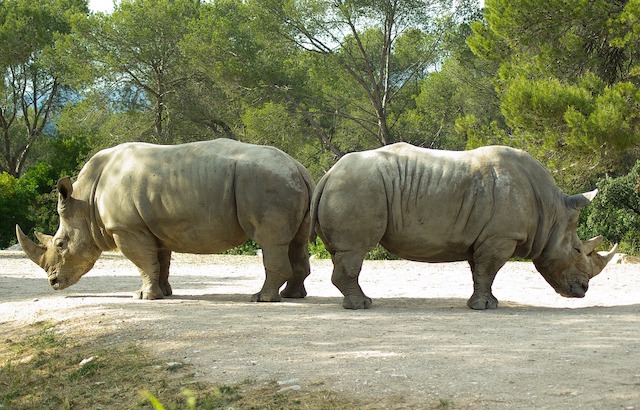
image from Max Pixel, CC0
The polarization of politics is a complex phenomenon. In a new book, Ezra Klein explains why there is a lot more to the current political quagmire than social media-driven disinformation and intolerance.
We humans like things simple, and it’s all too easy to see the world through the polarized lens created by the bubble and echo-chamber of your particular affinity groups.
So in this post I’m going to ask you to grit your teeth, PLEASE read all three of the articles below, all written four years ago in the run-up to last US election, keep an open mind about what each says, and be alert to your instinctive reactions to them:
- An obituary, and its back-story: Eli Saslow in the Washington Post writes about the tragic life and death of Anna Marrie Jones of Oklahoma, age 54.
- View from the left: Anne Amnesia from the blog More Crows Than Eagles digs into Anna Marrie’s story with her perspective on the larger picture. Anne was a Bernie Sanders supporter. She’s no longer blogging, but may well still be a Bernie fan.
- View from the right: Rod Dreher in the American Conservative reviews Anne’s story very enthusiastically but frames the situation utterly differently. Rod did, and says he will again, vote for Trump despite not particularly liking or respecting him.
As long as we, the precariat-becoming-unnecessariat, remain distracted by our polarized worldviews from seeing our common crises — social, economic, political, and ecological — we will remain unable to appreciate our shared predicament, let alone start to figure out how to deal with it.





Interesting – I’m actually quite confused by people confessing to be Christians voting for someone who is simply “not a democrat”. I’m also confused by people considering voting for Democrats as “voting for socialism”. From my perspective outside of the US everything looks at least some way right of centre. What has anyone got to vote for? It already seems like a meaningless ritual.
I also saw the common ground I have with the conservative viewpoint – where I get stuck is the solution always being more religion, or that society was somehow wonderful a century ago. The inequality is there through the whole history of civilisation…
I’ve no idea what to do when I’m busy merely trying to cope, like so many.
Nathan: Yeah, it is interesting how people hear what they want to hear, not what is actually being said. I remember reading someone’s description of all religions as being essentially nostalgic — in order to believe things can be better in the future, afterlife etc with appropriate devotion, there needs to be a reference point in the past (“when I was a boy”, or “before the Fall” etc) when things were better, even if that has to be concocted. When I started studying history, I was astonished to discover that “progress”, on which even modern religions like capitalism and humanism are based, is just a myth, a story, not at all connected to what actually happened.
Dave, your last sentence is tragically true. (And it doesn’t matter whether or not “we have free will”, eh?) When I read the first article, I became very sad. When I read the next two, they reminded me of how human minds can so easily misinterpret experiences to form delusional conceptions of “social reality” which happen to emphasize fear and status and hatred over cooperation and long range planning. I suspect it will only get worse as our physical environment degrades, key resources become too expensive, and most people (even in developed nations) contemplate their decreasing “standard of living”, enlarging the “precariat” and “unnecessariat”. We will be told to hold onto hope, think the right thoughts, vote with our dollars and vote for the right politicians, while plutocrats and power brokers make the most of every “opportunity”.
Some sages have claimed “everything is perfect”, but I have not been able to adapt that perspective, so the prospect of increasing political polarization, economic inequality, and strife, decreasing food security (probably eventually ending in large scale die-off), and decreasing social cohesion, is scary and saddening.